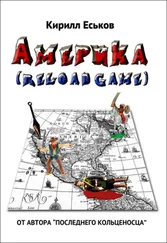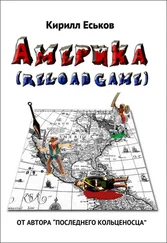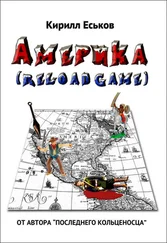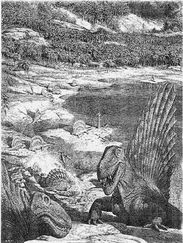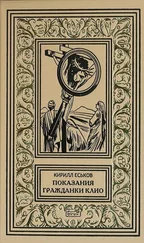Кирилл Еськов - The Last Ringbearer
Здесь есть возможность читать онлайн «Кирилл Еськов - The Last Ringbearer» весь текст электронной книги совершенно бесплатно (целиком полную версию без сокращений). В некоторых случаях можно слушать аудио, скачать через торрент в формате fb2 и присутствует краткое содержание. Жанр: Фэнтези, на английском языке. Описание произведения, (предисловие) а так же отзывы посетителей доступны на портале библиотеки ЛибКат.
- Название:The Last Ringbearer
- Автор:
- Жанр:
- Год:неизвестен
- ISBN:нет данных
- Рейтинг книги:4 / 5. Голосов: 1
-
Избранное:Добавить в избранное
- Отзывы:
-
Ваша оценка:
- 80
- 1
- 2
- 3
- 4
- 5
The Last Ringbearer: краткое содержание, описание и аннотация
Предлагаем к чтению аннотацию, описание, краткое содержание или предисловие (зависит от того, что написал сам автор книги «The Last Ringbearer»). Если вы не нашли необходимую информацию о книге — напишите в комментариях, мы постараемся отыскать её.
© 2010 Yisroel Markov (English translation),
For non-commercial distribution only
The Last Ringbearer — читать онлайн бесплатно полную книгу (весь текст) целиком
Ниже представлен текст книги, разбитый по страницам. Система сохранения места последней прочитанной страницы, позволяет с удобством читать онлайн бесплатно книгу «The Last Ringbearer», без необходимости каждый раз заново искать на чём Вы остановились. Поставьте закладку, и сможете в любой момент перейти на страницу, на которой закончили чтение.
Интервал:
Закладка:
Tzerlag decided then that nothing could help the generals; to hell with them and this war! Enough of this, guys – we shall learn war no more! Thank the One, they had made it out of that damned forest, where you can’t even get a bearing in cloudy weather and every scratch begins to rot immediately, so now, home in the desert, we’ll be fine. In his dreams the sergeant was already at the familiar Teshgol camp, which was now only one good night’s march away. He pictured clearly to himself how he would unhurriedly determine what needs fixing, then they’d be invited to the table, and after the second mug the hostess would casually steer the conversation to the difficulties of maintaining a household without a man around, while the grimy-faced youngsters (there’s four of them there, or was it five?) would be circling around and clamoring to touch his weapons… The other thought he had while drifting off to sleep was: wouldn’t it be nice to find out who the hell wanted this war, and meet him in a dark corner somewhere…
No, seriously – who wanted it?
Chapter 3
Middle Earth, the arid belt
A natural history brief
Two types of climate epochs follow one another in the history of any world, including Middle Earth – pluvial and arid; the growth and shrinking of polar ice caps follow a single rhythm, which is a sort of a pulse of a planet. Those natural cycles are concealed from the eyes of historians and scalds by the kaleidoscopic variety of peoples and cultures, although it is those very changes that largely create this kaleidoscope. Climate change can play a larger role in the history of a people, or even a civilization, than the deeds of great reformers or a devastating invasion. Well, in Middle Earth the Third Age was drawing to a close together with a pluvial climate epoch. The paths of moisture-laden cyclones kept bending towards the poles, and the trade wind belts, covering the thirties’ latitudes in both hemispheres, were rapidly turning to deserts. Not that long before the Mordor plains had been a savannah, while real forests of juniper and cypress covered the slopes of Orodruin; now the desert was relentlessly encroaching upon the dry steppes hugging the foot of the mountain ranges, consuming acre after acre. The snow line in the Ash Mountains kept creeping higher, and the streams feeding the oasis of Gorgoroth more and more resembled a child dying from some unknown disease. Had the local civilization been a bit more primitive and the country poorer, that is how it would have continued; the process would have taken centuries, and something always comes up over such stretches of time. However, Mordor was powerful beyond measure, so the powers-that-be decided not to “seek mercy from nature,” but rather to set up an extensive irrigation system, using the tributaries of the Sea of Núrnen.
An explanation is in order here. Irrigation agriculture in arid regions is very productive, but has to be conducted with utmost care. The problem is high salinity of the groundwater; the main challenge is to avoid bringing it up to the surface, God forbid, or it will salt the topsoil. This is precisely what will happen if your irrigation dumps too much water on the fields and the soil capillaries fill up enough to connect the groundwater to the surface. Capillary forces and surface evaporation will immediately begin pumping that water up to the surface (exactly like oil going up the wick of a lit lamp), and this process is irreversible; in a blink of an eye your field will turn into a lifeless salt pan. The saddest part is that once you screw up, there is no way to push that salt back down.
There are two ways to avoid this calamity. One is to water very sparingly, so that the water in the shallow capillaries does not connect with the groundwater. Another possibility is the so-called flushing cycle, whereby you cause a regular flooding that carries the constantly upwelling salt away to the sea or some other terminal drain. This, however, can only be done in the valleys of large rivers that flood regularly – it is that spring flood that washes away the salt accumulated over the previous year. This is precisely what happens, for example, in Khand, and it was precisely that irrigation model that the inexperienced Mordor engineers have copied in a sincere belief that the quality of irrigation is determined by the number of cubic furlongs of earth moved.
But it is impossible to establish a flushing cycle in the closed basin of Mordor, since there are no rivers flowing through it, and the only terminal drain is the Sea of Núrnen – the very same Núrnen whose tributaries got diverted to irrigate far-flung fields. The negligible elevation difference meant that there was no way to create anything like a flood in those channels, so there was nothing to flush the salt and nowhere to flush it. After a few years of bumper crops the inevitable happened – huge tracts of land were rapidly salted, and all attempts to establish drainage failed due to high groundwater levels. The end result was an enormous waste of resources and massive damage to the country’s economy and ecology. The Umbarian system of minimal irrigation would have suited Mordor just fine (and been a lot cheaper to boot), but this opportunity had been irretrievably lost now. The masterminds of the irrigation project and its executives were sentenced to twenty-five years in lead mines, but, predictably, that did not help anyone.
This event had been a major setback, but still not a catastrophe. By that time Mordor was deservedly being called the World’s Smithy, and it could trade its manufactured goods for any amounts of food from Khand and Umbar. Caravans of traders went back and forth through the Ithilien crossroads day and night, and there were more and more voices in Barad-Dur saying that the country has had enough tinkering with agriculture, which was nothing but a net loss anyway, and the way to go was to develop what nobody else had – namely, metallurgy and chemistry. Indeed, the industrial revolution was well underway: steam engines toiled away in mines and factories, while the early aeronautic successes and experiments with electricity were the talk of the educated classes. A universal literacy law had just been passed, and His Majesty Sauron the VIII has declared at a session of parliament (with his usual ton-of-bricks humor) that he intended to equate truancy and treason. The excellent work of an experienced diplomatic corps and a powerful intelligence apparatus permitted a drastic reduction of the professional army, so that it was not a major burden on the economy.
But it was at that time that the words that changed the entire history of Middle Earth were said; strangely, they repeated almost exactly a prophetic utterance made in another World regarding a very different country: “A state that is unable to feed itself and is dependent on food imports cannot be considered a formidable foe.”
Chapter 4
Arnor, the Tower of Amon Súl
November, year 3010 of the Third Age
Those words were uttered by a tall white-bearded old man in a silvery-gray cloak with its hood thrown back; he stood with his fingertips resting on the surface of a black oval table, surrounded by four people in high-backed armchairs, half in shadow. By some signs, his speech had been a success and the Council was on his side, so now the piercing dark blue eyes of the standing man, which contrasted starkly with the parchment-yellow skin of his face, were focused on only one of the four – the one he would have to battle now. That man, huddling tightly in his blinding-white cloak, sat at a slight distance, as if already separating himself from the rest of the Council; he appeared to have a strong fever. Presently he straightened out, clutching the chair arms, and his deep and smooth voice sounded under the dark ceiling:
Читать дальшеИнтервал:
Закладка:
Похожие книги на «The Last Ringbearer»
Представляем Вашему вниманию похожие книги на «The Last Ringbearer» списком для выбора. Мы отобрали схожую по названию и смыслу литературу в надежде предоставить читателям больше вариантов отыскать новые, интересные, ещё непрочитанные произведения.
Обсуждение, отзывы о книге «The Last Ringbearer» и просто собственные мнения читателей. Оставьте ваши комментарии, напишите, что Вы думаете о произведении, его смысле или главных героях. Укажите что конкретно понравилось, а что нет, и почему Вы так считаете.


